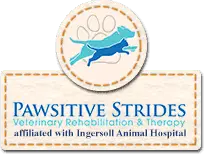Autumn, like any season, brings a few hazards for our four-legged companions. As fall rolls in, take note of your Des Moines vet’s advice on avoiding and preventing these common dangers.
Cooler Temperatures
Our first autumn hazard is perhaps the most obvious: it’s getting colder! Don’t forget that autumn nights can get quite chilly, so make sure your pet doesn’t stay outside for too long. Your pet will be happiest inside with your family, where it’s safe and warm.
Insecticides
Small pests like insects and wild rodents seek warmth inside our homes in the autumn. We combat the problem with insecticides, rodenticides, and other poisons. Remember that these substances are also dangerous for our pets! Place insect and rodent traps carefully, where pets aren’t likely to go, and consider pet-safe alternatives. Ask your vet for more information.
Wild Mushrooms
Although most wild mushrooms aren’t toxic, there is a small percentage that are extremely dangerous. As such, it’s best to play it safe and have your pet avoid all mushrooms growing in your yard. These fungi are at their peak growth in the fall and spring, so it’s not unlikely that your pet will run across one. Check with your vet to see if there are known toxic mushrooms that grow in your area.
Wild Animals
Certain animals—like snakes—are preparing to go into hibernation for the winter at this time of year. This means they don’t want to be disturbed, and will react more aggressively than usual if provoked. An unsuspecting pet could wander into one, potentially getting bitten! Other wild critters like opossums and raccoons are also active in the fall, so keep a close eye on your pet while they’re outdoors. Don’t let them run out of your sight, especially around wooded areas.
Antifreeze
As the winter starts to bear down, a lot of car owners are putting antifreeze in their cars’ engines. Antifreeze contains ethylene glycol, a deadly pet poison. Even worse, it tastes sweet, which may attract pets. Use antifreeze with extreme caution, store it properly when you’re finished, and clean up any spills right away.
Keep
your Des Moines veterinarian’s number close by at all times to call in the event of an accident or emergency. Quick veterinary action is key to returning your pet to full health!




